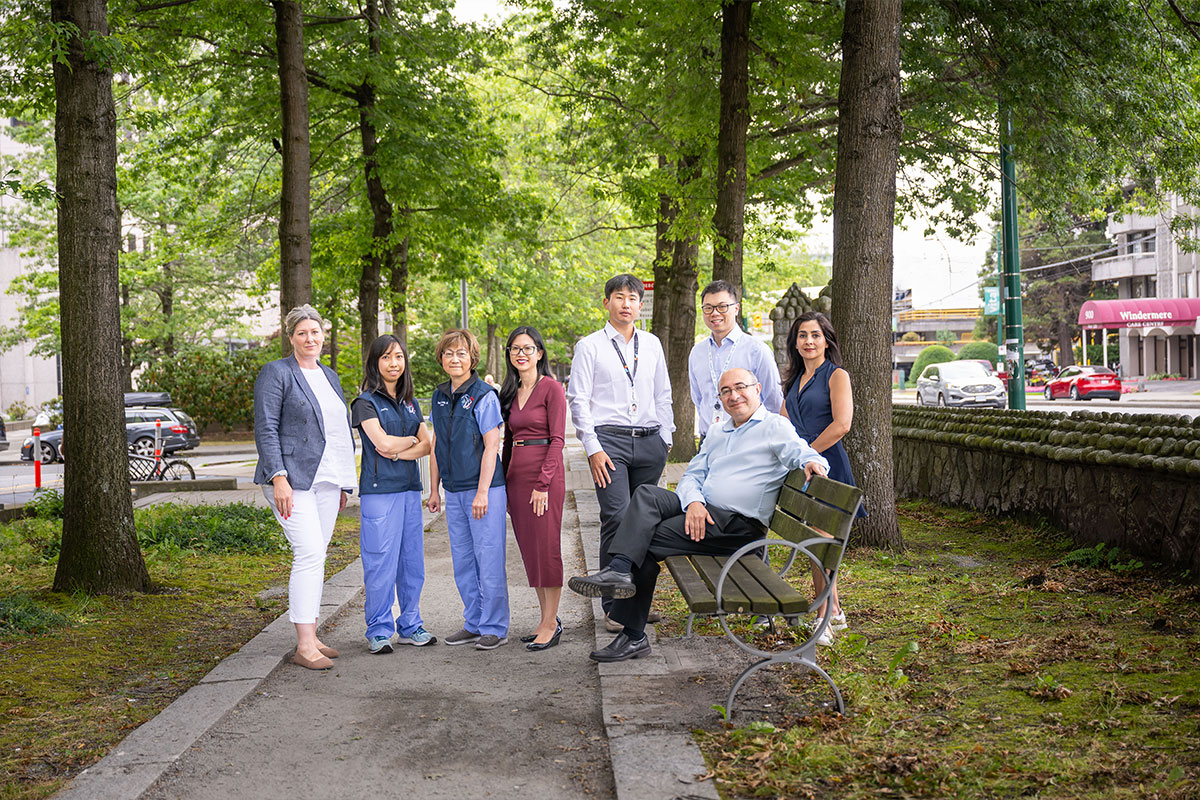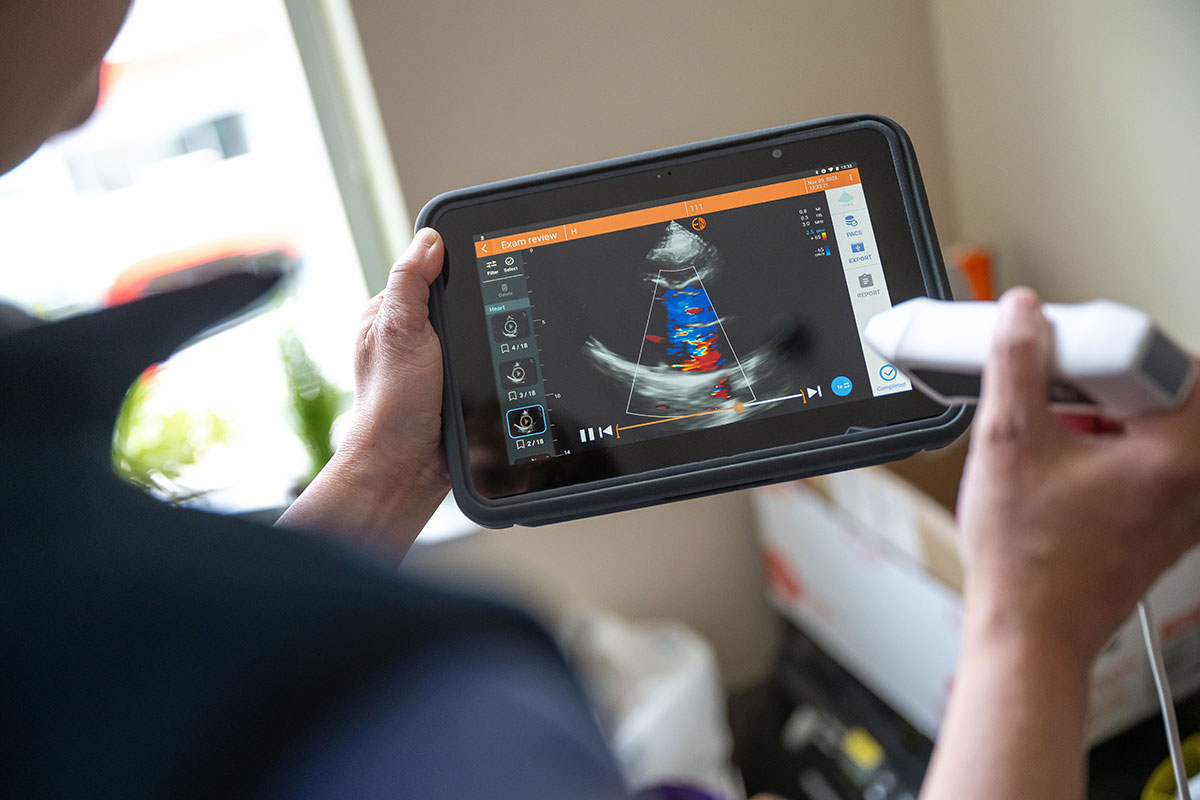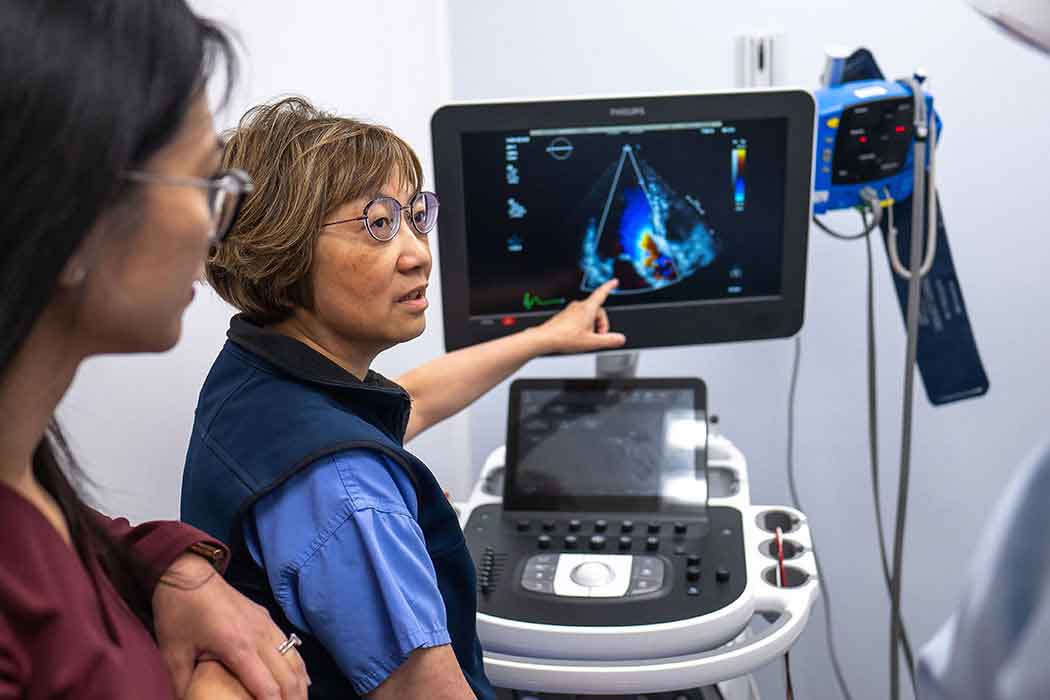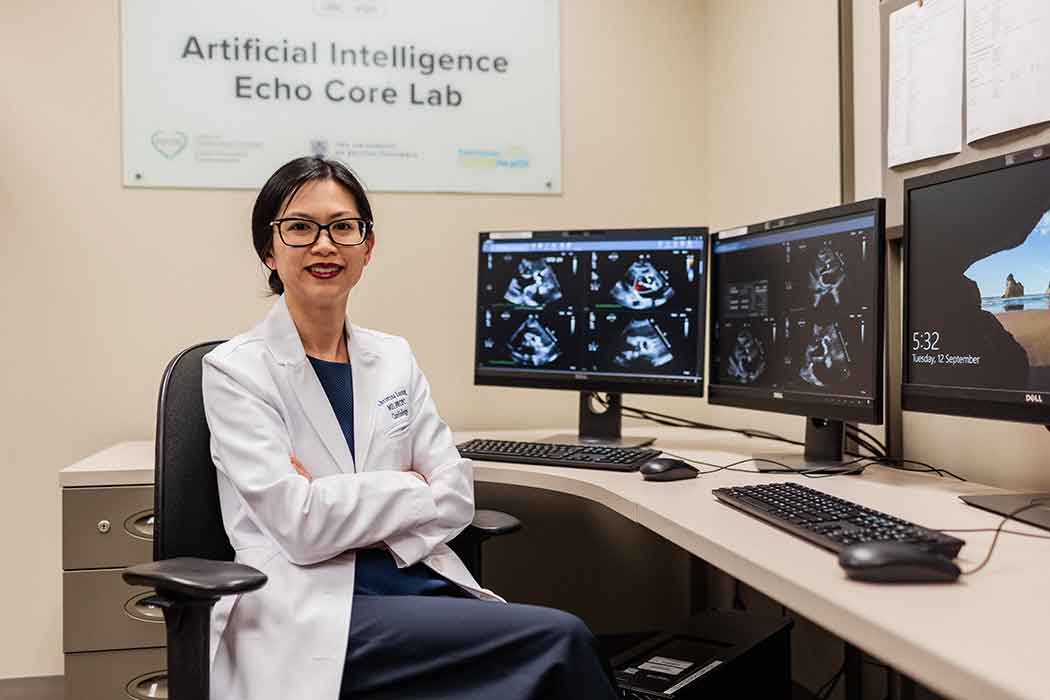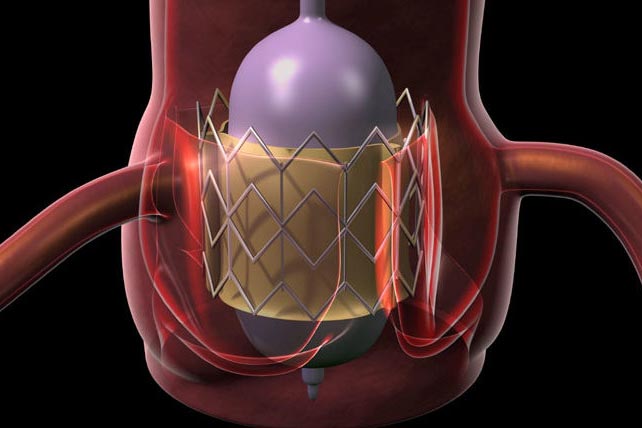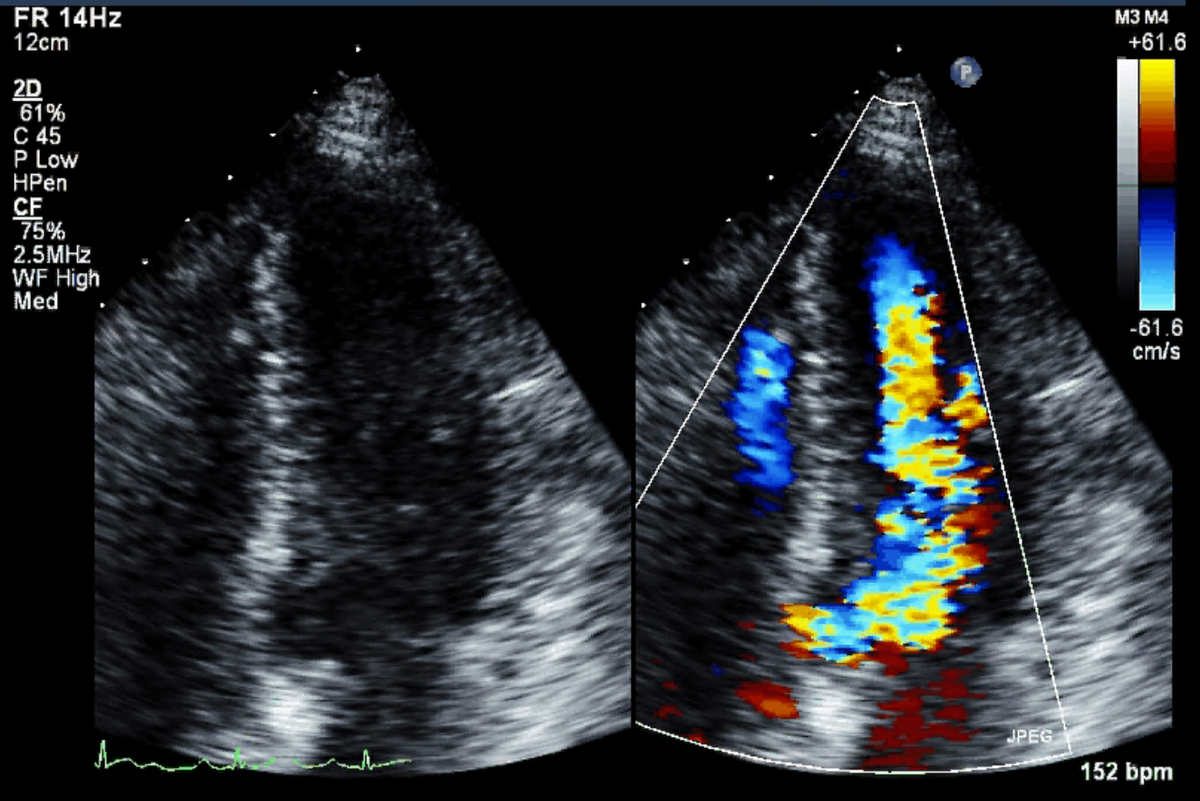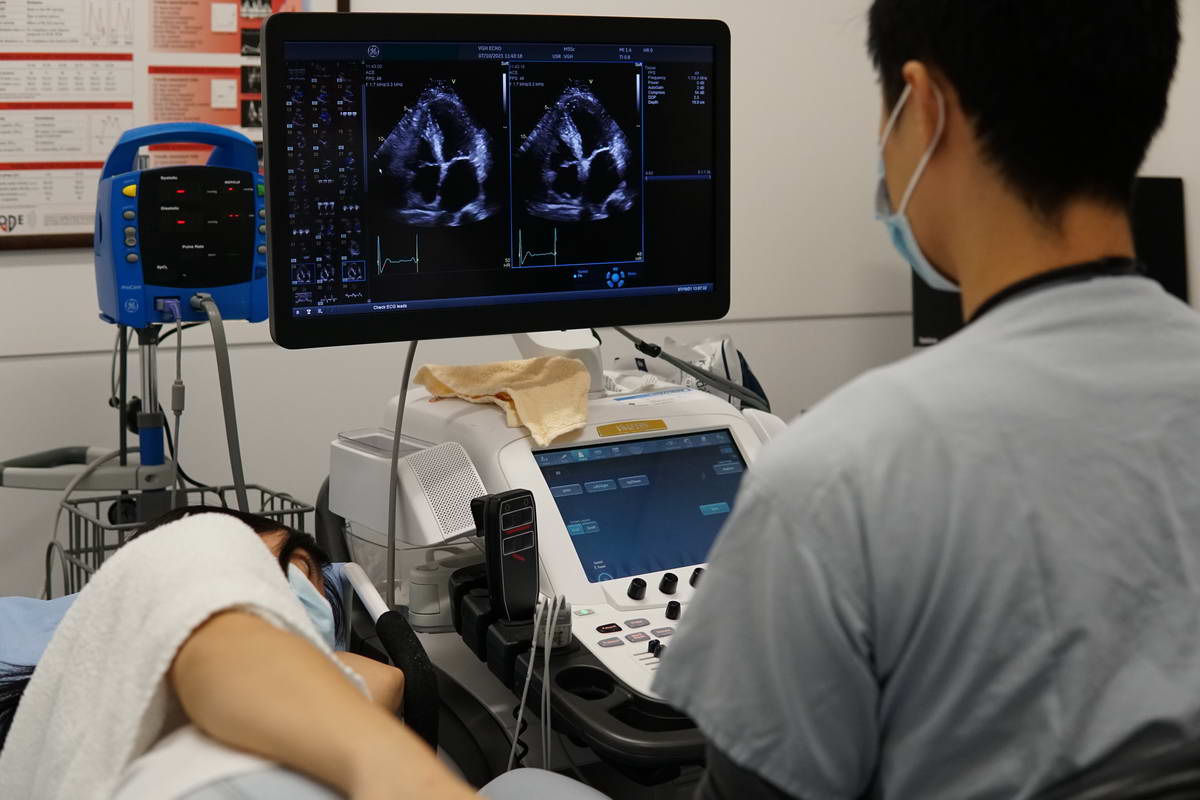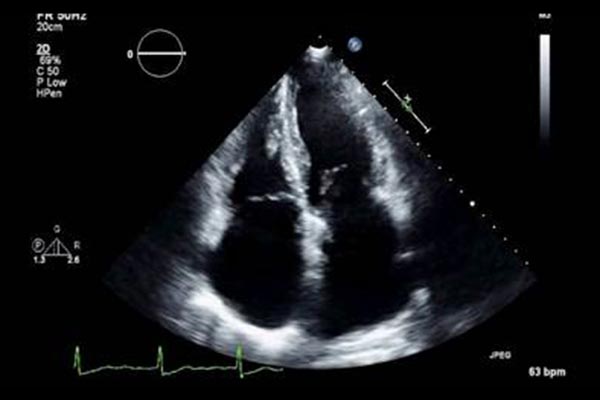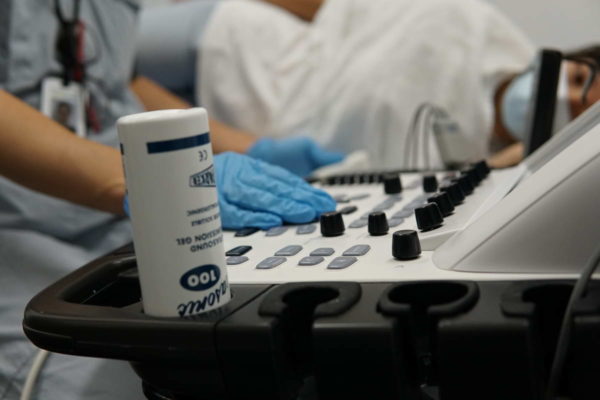Transforming care through innovation, data, and equity
The Centre for AI, Data Science, and Imaging is redefining how cardiac care is delivered by combining cutting-edge artificial intelligence, advanced imaging, and data sciences to improve the diagnosis, treatment, and prevention of heart disease across British Columbia and beyond.
Innovation Rooted in Real-World Impact
The Centre’s work builds on years of leadership in data-driven analytics and imaging. More recently, the Centre has added genomics to its core capabilities, opening new frontiers in precision health and personalized medicine. From predictive risk modeling to AI-powered diagnostics, the Centre focuses on finding solutions that make a difference in real lives, in real communities.
A Truly Multidisciplinary Team
The multidisciplinary team brings together experts including cardiologists, engineers, data scientists, genomic researchers, rural and Indigenous health providers, family doctors, and allied health professionals. It works closely with patient partners across all health authorities to ensure that its work stays grounded in lived experience.
Advancing Equity Through Technology
A patient’s geographical location should not determine the quality of care they receive. Through the use of AI and remote imaging technologies, the Centre strives to reach underserved communities, from rural and remote regions to long-term care homes and marginalized urban populations. With these tools, the earlier detection of heart disease, support for clinical decisions, and personalized care based on a patient’s genetics, imaging results, and environment are made possible.
Precision Health, Personalized for Everyone
The Centre’s team is passionate about understanding the heart and how its size, shape, function, stiffness, and contractility, combined with genomic and environmental data, can predict the risk for heart attacks, stroke, and arrhythmias. With this insight, clinicians can intervene earlier and tailor care more effectively. It has the talent, data, infrastructure, and visionary leadership to make this future a reality.
Powered by Partnership
The clinical and research work done at the Centre is made possible by strong collaborations with health authorities, academic institutions, Indigenous communities, donors, and patient partners who share the Centre’s vision. These partnerships help shape a healthier, more equitable future for British Columbians and build models of care with global relevance.


